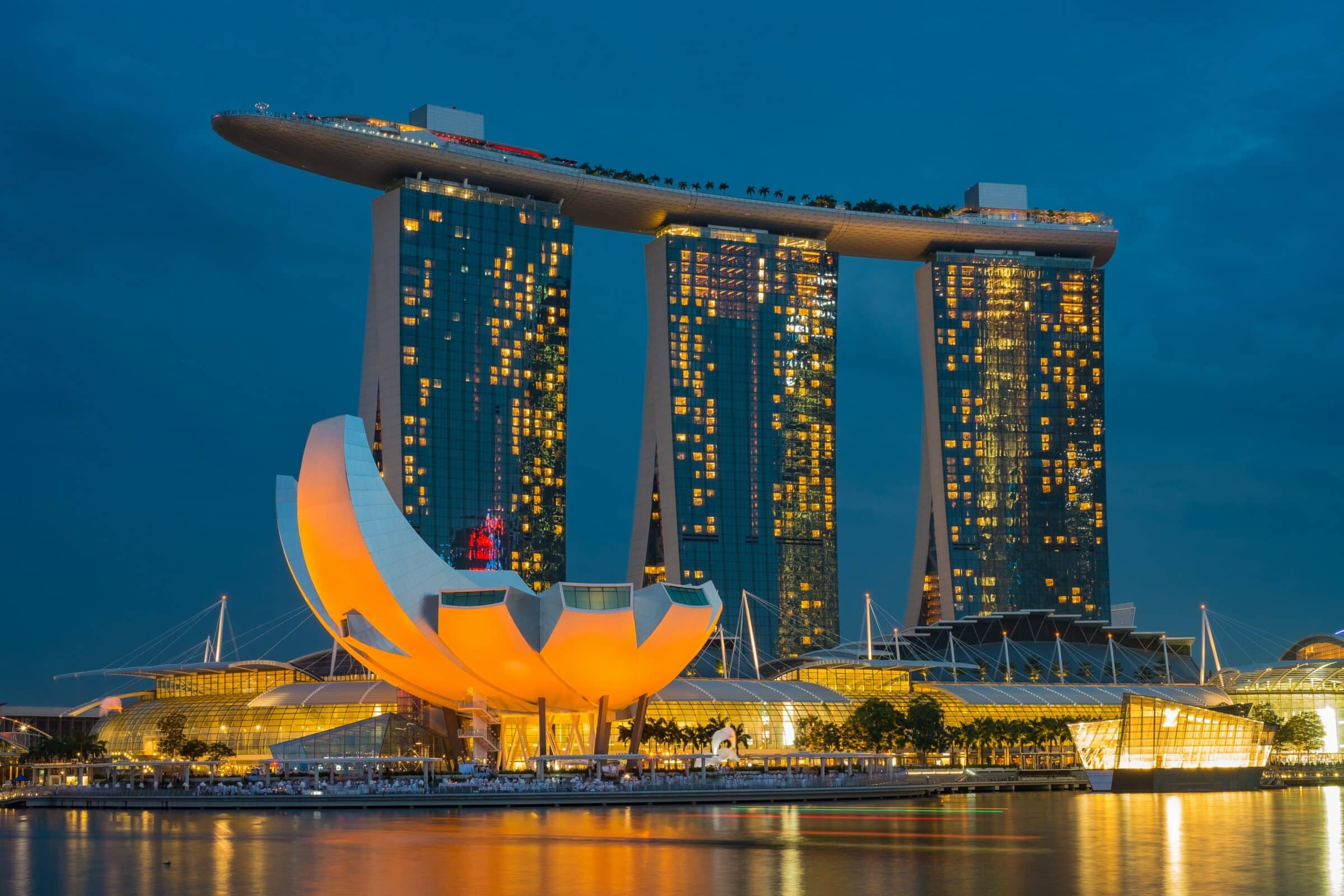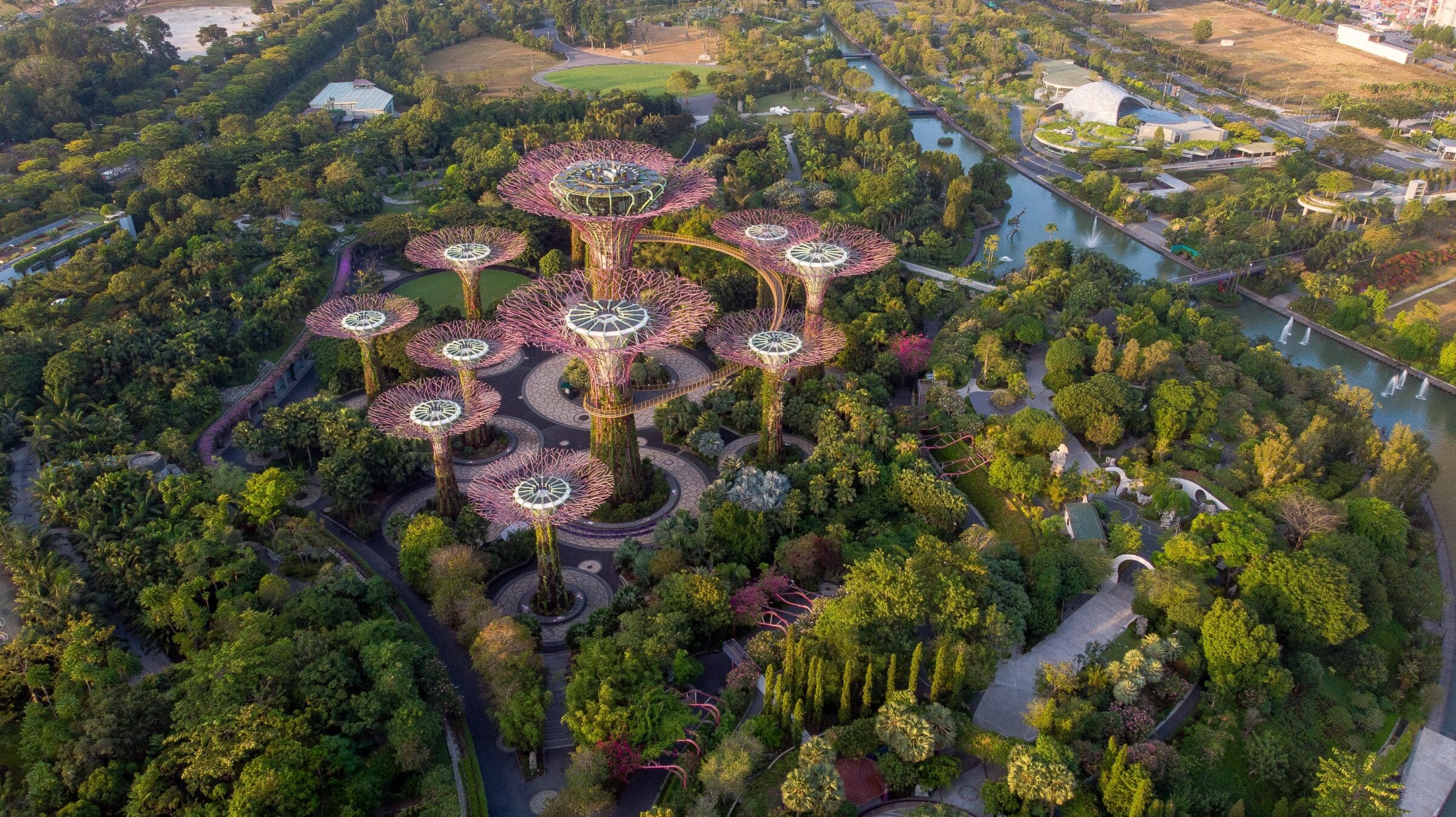In recent years, Singapore has established itself as a global leader in the implementation of Internet of Things (IoT) technology, propelling the nation towards its vision of becoming a Smart City.
With a strong focus on innovation and efficiency, IoT in Singapore has spurred the development of innovative solutions across various industries, including transportation, energy, and healthcare.
As this thriving ecosystem continues to evolve, the city-state is poised to set a benchmark for other cities worldwide, demonstrating the transformative potential of IoT and underlining Singapore’s commitment to a smarter and more sustainable future.
In this blog post, we will explore how Singapore is utilising IoT technology to become one of the world’s leading smart cities and the IoT challenges the nation has faced along the way.
What is IoT?
The Internet of Things refers to the interconnected network of physical devices, vehicles, buildings, and other objects embedded with sensors, software, and network connectivity, enabling them to collect, exchange, and analyse data autonomously.
This advanced technology has the potential to revolutionise various industries, such as agriculture, healthcare, transportation, and manufacturing, by improving efficiency, reducing costs, and enhancing decision-making processes.
With over 15 billion IoT devices currently in use worldwide and rapid growth expected in the coming years, IoT is poised to have a transformative impact on both individual lives and the global economy.
How is IoT in Singapore being used?
Being one of the world’s leading smart cities, IoT in Singapore is utilised in a myriad of ways, pioneering the technology’s potential in multiple industry sectors.
One significant example is the Smart Nation initiative, which harnesses the power of IoT to improve living conditions, create economic opportunities, and build a more efficient digital infrastructure.
Singapore has implemented IoT solutions in diverse sectors, such as intelligent transportation systems to optimise traffic flow, smart energy grids for efficient resource consumption, and remote health monitoring for elderly citizens through wearable devices.
Additionally, the government has established the IoT Innovation Lab to drive research and development in IoT technologies.
This commitment to adopt IoT solutions demonstrates Singapore’s ambition to lead the world in embracing the potential of IoT, enhancing citizens’ lives, and promoting sustainable urban development.
As another example, 99% of government services in Singapore are digital from end to end, thanks to the use of innovative IoT practices.
IoT is also being used to improve the overall experience in Singapore’s education system, with AI-enabled sensors providing data on student engagement levels and classroom conditions.
Furthermore, Singaporean businesses are taking advantage of IoT solutions for automation, predictive analytics, asset tracking, supply chain management, and more.
Singapore as a smart city
Singapore’s evolution into one of the world’s top smart cities is a testament to its forward-thinking approach and commitment to leveraging cutting-edge technologies for sustainable urban development.
With over 84% of its population having internet access, Singapore boasts one of the highest internet penetration rates globally, providing the foundation for its smart city vision.
This connection has allowed Singapore to transfer 99% of government services to be digital from end to end, furthering its forward-thinking, modern approach.
The nation has already implemented numerous IoT applications in various sectors, from the advanced traffic management system designed to alleviate congestion to an extensive network of smart sensors in robotic swans to monitor water quality, enabling data-driven decision-making to improve environmental conditions.
Furthermore, Singapore has embraced the power of artificial intelligence and big data analysis to anticipate and address urban challenges, such as waste management and public safety.
The city-state’s success as a smart city can be attributed to the strong collaboration between the government, private sector, and research institutions, fostering an innovation-driven ecosystem that encourages the development of innovative technologies, enhancing the quality of life for its citizens.
In recognition of its achievements, Singapore has been ranked as the top smart city in Asia in the 2021 IMD Smart City Index, solidifying its position as a global leader in this domain.
Why security is important for IoT in Singapore
Security is of paramount importance for IoT in Singapore due to the widespread integration of IoT devices and applications throughout the nation’s infrastructure.
As a global leader in smart city development, Singapore relies heavily on IoT to improve the quality of life, economic growth, and environmental sustainability.
Consequently, securing these interconnected systems is crucial in ensuring data privacy, maintaining public trust, and preventing malicious cyber-attacks that could disrupt essential services, such as transportation, healthcare, and public safety.
In response to this challenge, Singapore has made significant investments in cybersecurity infrastructure, including the establishment of the Cyber Security Agency (CSA) in 2015.
The CSA collaborates closely with various stakeholders, including government agencies, industry partners, and research institutions, to develop and implement comprehensive cybersecurity strategies.
Another way the Singaporean government has combated these security issues is with the implementation of stringent cybersecurity measures and guidelines, including the Cybersecurity Act of 2018 and the establishment of a National Cyber Security Centre (NCSC).
Furthermore, the government actively promotes collaboration between public and private sectors to enhance cybersecurity capabilities and develops initiatives to nurture local talent in this critical field.
By prioritising security in its IoT ecosystem, Singapore aims to ensure the continued resilience and reliability of its smart city initiatives, ultimately safeguarding the well-being and quality of life for its citizens.
Biggest challenges for IoT in Singapore
While the aforementioned IoT challenge of security plays a vital part in creating an intelligent metropolis, there are other issues that need to be addressed in Singapore.
Data privacy
Data privacy is one of the most significant challenges for IoT in Singapore due to the vast amounts of personal and sensitive information collected and processed by IoT devices and systems.
With IoT applications integrated into various aspects of citizens’ lives, the potential for misuse or unauthorised access to this data raises significant concerns.
To address these concerns, Singapore has enacted robust data protection laws, such as the Personal Data Protection Act (PDPA), which governs the collection, use, and disclosure of personal data by organisations.
Moreover, as more devices become interconnected, the complexity of data privacy management increases, necessitating continuous efforts to enhance data protection frameworks and practices.
Through encryption and access controls, organisations can ensure that only authorised personnel have access to sensitive information, safeguarding citizen privacy.
By prioritising data privacy, Singapore aims to strike the right balance between leveraging IoT’s benefits and protecting its citizens’ privacy, fostering an environment of trust and confidence in its smart city initiatives.
Network infrastructure limitations
Network infrastructure limitations pose another significant challenge for IoT in Singapore, as the increasing number of connected devices and systems demands robust and reliable networks to ensure seamless communication and data transfer.
A well-developed network infrastructure is imperative for smart city initiatives, as it enables the efficient functioning of IoT applications across various sectors, such as transportation, healthcare, and public safety.
However, as the number of IoT devices grows exponentially, the strain on network resources can lead to congestion, latency, and potential disruptions in services.
To overcome these limitations, Singapore is actively investing in the development and deployment of advanced networking technologies, such as 5G networks and fibre-optic broadband, to support its IoT ecosystem.
By addressing network infrastructure challenges, Singapore aims to maintain its position as a global leader in smart city development and ensure that its IoT initiatives continue to deliver tangible benefits to its citizens and businesses alike.
Experienced IoT workers
A shortage of experienced IoT workers presents a significant challenge for IoT in Singapore, as the rapid growth of the smart city ecosystem requires skilled professionals to develop, implement, and maintain the complex, interconnected systems that underpin the nation’s IoT initiatives.
The demand for IoT expertise outpaces the supply of qualified talent, leading to a competitive market for skilled workers and potential delays in project execution.
To address this skills gap, the Singaporean government has launched various initiatives, including training programs and partnerships with educational institutions, to foster the development of local talent and build a workforce capable of supporting the country’s ambitious IoT goals.
By investing in the cultivation of homegrown IoT expertise, Singapore aims to ensure the long-term success and sustainability of its smart city initiatives while creating rewarding career opportunities for its citizens.
Device management and maintenance
Device management and maintenance is an IoT challenge in Singapore due to the sheer number of devices that need to be monitored, maintained, and updated regularly.
As the city continues to incorporate IoT technology into various sectors, the complexity and scale of managing these devices increase exponentially.
Ensuring that each device functions optimally, receives prompt security updates, and remains compatible with other devices and systems is crucial for the smooth functioning of Singapore’s smart city initiatives.
Moreover, efficient device management is vital for reducing the risk of device failures, security vulnerabilities, and downtime, which can negatively impact the overall IoT ecosystem.
By addressing device management and maintenance challenges, Singapore aims to optimise the performance of its IoT infrastructure and maintain the high quality of services that citizens and businesses have come to expect from its smart city initiatives.
Seamless IoT connectivity with Caburn Telecom
IoT in Singapore is revolutionising the way citizens and businesses interact with technology, paving the way for a truly connected and intelligent urban environment.
Addressing the challenges associated with security, data privacy, network infrastructure, experienced workforces, and device management is crucial for the nation to fully realise the potential of IoT.
It’s clear to see that secure and reliable connectivity lies at the heart of any IoT operation, regardless of your location.
Caburn Telecom plays a vital role in this connectivity ecosystem by offering secure, dependable and seamless IoT connectivity solutions.
Their expertise in global communication networks helps ensure that Singapore’s smart city initiatives can operate efficiently and safely, contributing to a brighter, more sustainable future for the country.
Contact Caburn Telecom today to discover the potential of IoT connectivity across numerous sectors.



